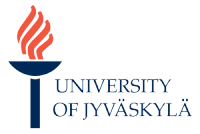The current information ecosystem has created a dire need for increased fact-checking, and researchers and practitioners alike are experimenting feverishly with automating the process. Lucas Graves, of University of Oxford, has reviewed current literature and interviewed some of the experts in the field in order to gain an overview of the state of the art.
Graves divides fact-checking into three distinct phases: detection, verification, and disseminating the results. Of the three, longest strides have been made in the first one: algorithms are fast becoming able to identify factual claims from formal statements. Even here different contexts complicate things, as talk show appearances, for example, are often less structured than pre-written speeches.
Verification, at least for now, seems a tall order for fully automated fact-checkers. Here, difficulties start with identifying what needs verifying: what data needs to be compared to what data. Furthermore, the quality of machine-readable data is inconsistent – if it is available at all. Automation appears to be best used for streamlining some sub-tasks of human fact-checkers, for example finding out whether a claim has already been fact-checked by someone else.
Graves’ overview has been published as a Reuters Institute fact sheet, entitled “Understanding the Promise and Limits of Automated Fact-Checking”. It is freely available online on the Reuters Institute website (open access).
Picture: Untitled by Michal Jarmoluk, licence CC0 1.0.















